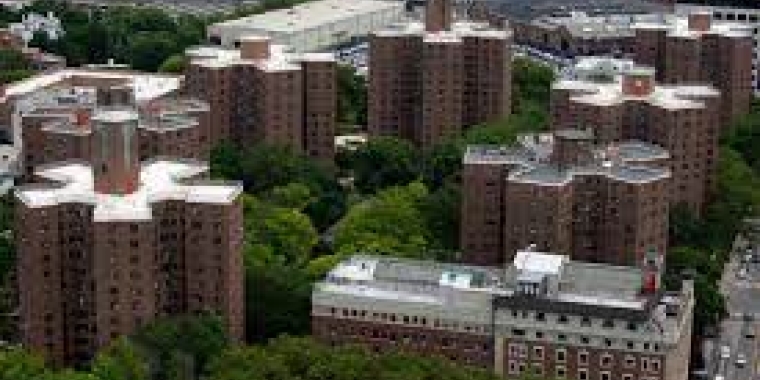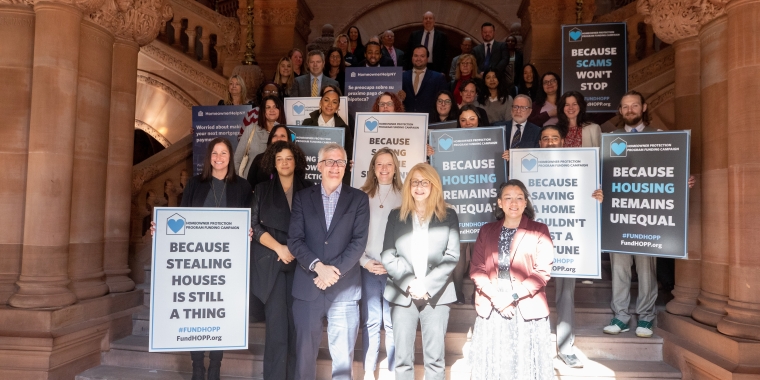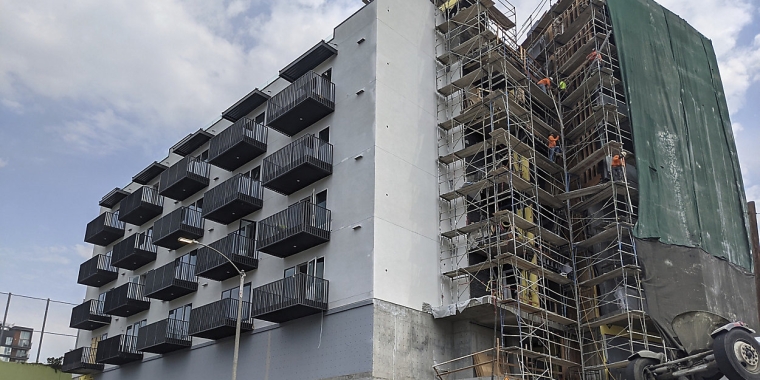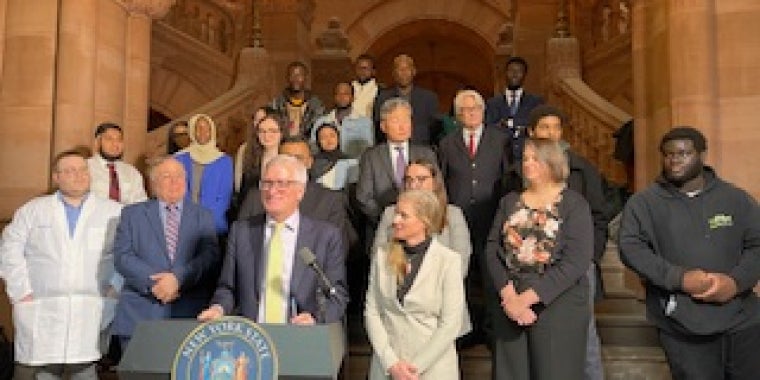NYCHA Rent Bailout Proposed for State Budget, With $466 Million Owed

The Farragut Houses in Brooklyn, June 14, 2022.Ben Fractenberg/THE CITY
Albany lawmakers are looking to throw NYCHA a lifeline this week, proposing to add millions of dollars to the state budget to give public housing tenants the same financial aid struggling private-sector renters got during the pandemic.
Under its version of the federally supported Emergency Rental Assistance Program (ERAP), the state paid off millions of dollars in rent arrears for private-sector tenants who stopped paying their rent during the COVID crisis.
But state lawmakers and then-Gov. Andrew Cuomo specifically placed public housing tenants at the back of the line for ERAP assistance, and the funds are set to run out — with NYCHA and other public housing authorities throughout the state having received not a dime of aid.
More than 70,000 NYCHA tenants now owe a total of $466 million in back rent, an unprecedented gap that the authority says is forcing it to dip into the reserve fund and is threatening its ability to complete major upgrades to its aging buildings.
In the last few weeks, the legislature belatedly has made shoring up NYCHA and its tenants a priority.
The state Office of Temporary and Disability Assistance estimates there’s only $347 million in ERAP funds and related federal assistance left over, all of which will go to private-sector renters who applied for reimbursement before the state’s application portal closed in January.
To level the playing field, this week the state Senate and Assembly are expected to propose a budget that includes an additional $389 million to cover at least some of the millions of dollars in rent arrears of public housing tenants in NYCHA and across the state, according to the bill’s sponsors, Sen. Brian Kavanagh and Assemblymember Grace Lee, both Democrats representing Lower Manhattan.
It’s not entirely clear how much of that would go to tenants at NYCHA, the nation’s biggest housing authority.
Kavanagh and Lee say the sum would cover the “estimated cost of providing rental assistance for tenants throughout the state who have applied for assistance, are eligible, but have been denied assistance to date solely because they reside in public housing or subsidized housing.”
The need is much bigger, and NYCHA is pressing for aid for as many tenants as possible.
NYCHA officials say there are $121 million worth of pending ERAP applications filed by NYCHA tenants for the first 12 months of the pandemic, and they estimate other tenants who did not apply but are eligible brings the total to $240 million for that time period. When extended to include unpaid rent from March 2020 to December 2022, that increases the total of rent arrears the authority thinks should be ERAP-eligible to $339 million.
Regardless of how many NYCHA tenants the state assistance would help, its sponsors say the proposal seeks to eliminate what they say was a flawed agreement that penalized public housing residents.
“We are hoping to correct policies by the previous administration that unfairly singled out subsidized tenants,” Lee said in an interview Monday. “I believe that public housing residents were unfairly deprioritized and they deserve the same funding the same way that all other residents were eligible for funding.”
“Our first obligation is to undo the damage we did,” Kavanagh told THE CITY.



